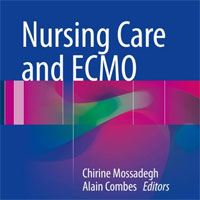Stories Category: Intensive Care

Shortages Of Essential Emergency Care Drugs Increase, Study Finds
The problems persist even after Congress in 2012 gave the FDA enhanced powers to respond when drug levels are low. At some hospitals, posters on the wall in the emergency department list the drugs that are in short supply... read more

Non-addictive Painkiller Shows Promise in Animal Trials
Preliminary research in monkeys suggests that a new medication might be able to provide pain relief similar to opioid drugs such as OxyContin, but without the same potential for addiction or serious side effects.... read more

Researchers identify protein critical in causing chronic UTIs
Researchers have identified a way to prevent chronic urinary tract infections (UTIs). Vaccinating mice against a key protein that bacteria use to latch onto the bladder and cause UTIs reduces severe disease, according to... read more
What did the ALPS trial results really show?
The trial pitted amiodarone against lidocaine with a saline control group for the termination of shock-resistant ventricular tachycardia and ventricular fibrillation... read more

Unnecessary Antibiotics Still Prescribed for Community-Acquired Pneumonia Due to Difficulties Identifying Resistant Strains
Unnecessary Prescription of Antibiotics Still Prevalent Due to Difficulties in Identifying Antibiotic-Resistant Staphylococcus aureus Community-acquired Pneumonia. Researchers examined the true prevalence of methicillin (antibiotic)-resistant... read more

OCT may speed detection of pneumonia-related bacteria in ICU patients
The ability to better detect and assess bacteria linked to a form of pneumonia prevalent in hospital intensive care units (ICUs) could soon become possible, according to research reported in the latest issue of the Journal... read more

Doctors, hospitals, advocates push for education on killer sepsis
Many people don't know about sepsis. Meanwhile, health care providers struggle to identify it early. Sepsis kills more than 250,000 people every year; people at highest risk are those with weakened immune systems.... read more

The laser probe, the iKnife, and the cutting edge of surgery
Advances in surgery include the iKnife, a tool that analyzes vapor from tissues during surgery to allow a more precise removal of tumors.... read more

The Perks of Manipulating the Microbiome
A patient's microbiome - the bacterial residents that inhabit the skin, mouth and gastrointestinal tract - can face a host of insults while battling an illness or infection. The microbial damage that ensues may significantly... read more

Gut bacteria may affect obesity risk in youth
Children and adolescents who are obese have different populations of gut microbes compared with youths of a normal weight, new research finds.... read more

7 Essential Clinical Application Downloads
Our clinical application article library contains a wide range of the most recent application notes, scientific posters, white papers and case studies. This article highlights seven of our most popular downloaded articles... read more

High Prevalence of Depression Following ICU Stays
Research shows people discharged from intensive care are at a high risk for developing depression, and a new study suggests that number is as high as 1 in 3.... read more

Chlorhexidine bathing significantly more effective in reducing hospital-acquired infections
A Houston Methodist team showed that chlorhexidine bathing of surgical ICU patients decreased the risk of hospital-acquired infections by more than 44 percent.... read more

Communication App Helps Patients Voice Their Needs
An innovative tablet-based application offers intubated and ventilated intensive care unit (ICU) patients a way to converse with their medical staff.... read more








